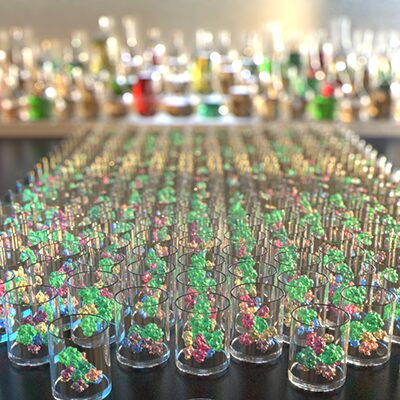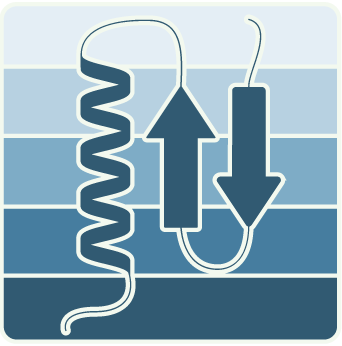Our Research
Bioprocess engineering enabled by synthetic biology
Modern life calls for urgent innovations in sustainability that are useful across geographies and economies and can operate at scale. The ability to sequester and degrade pollutants through biological processes and make medicines where and when they are needed will significantly impact all industries, people, and the planet.
The Karim Lab integrates synthetic biology and bioprocess engineering by mixing cell-free systems, protein engineering, metabolic engineering, artificial intelligence, and additive manufacturing to:
New Enzymes
Explore natural proteins and create new-to-nature enzymes.
Biohybrids
Combine biological and chemical systems in new ways.
Bioprocesses
Enable carbon-optimized bioremediation and bioproduction.

Our lab operates across the molecular, system, and process scales to enable novel bioprocesses to capture, concentrate, and convert human-made materials to solve global challenges in human and planet health. These scales build on a body of work in pathway prototyping and enzyme discovery, informing cellular pathway and strain design, studying physiochemical impacts on enzymatic cascades, and developing high-throughput, machine-learning aided engineering—working together to address scientific and technological gaps in engineering biology for sustainability. We have projects in the lab focused on increasing our ability to biorecover critical minerals, biorecycle carbon, and biomanufacture of new materials and medicines.
Biorecover
We are engineering bioprocesses for selective biomining from waste streams.

Biorecycle
We are building enzymatic cascades for waste processing and atmospheric carbon transformation.

Biomanufacture
Enhancing protein production and post-translational modification with
data-driven and AI-guided design.

Check out our latest publications
With support from



LOOKING TO JOIN OUR TEAM?
We are looking for creative and curious graduate students, postdocs, and undergraduates that are interested exploring the interface between biological and chemical systems.
